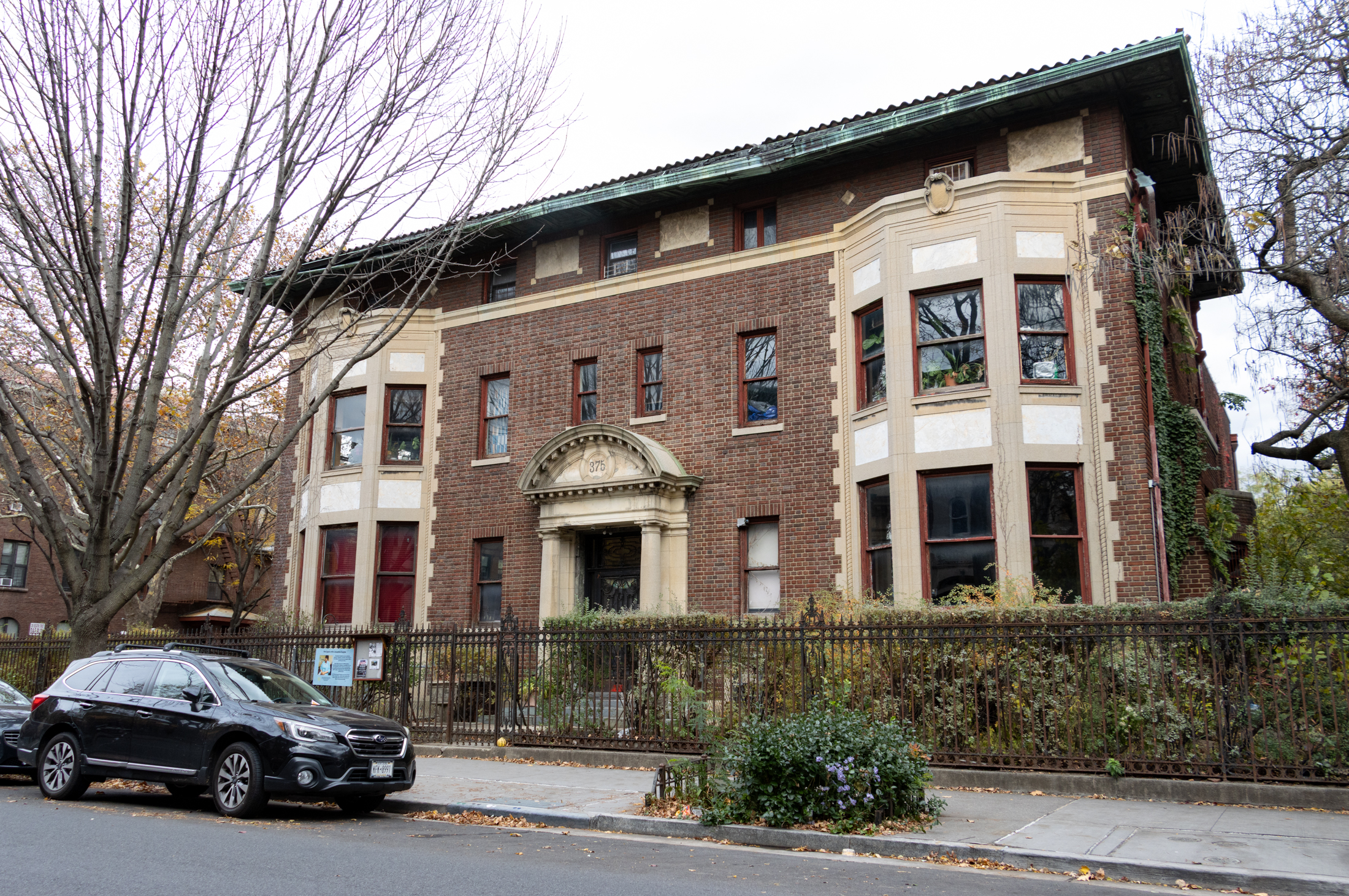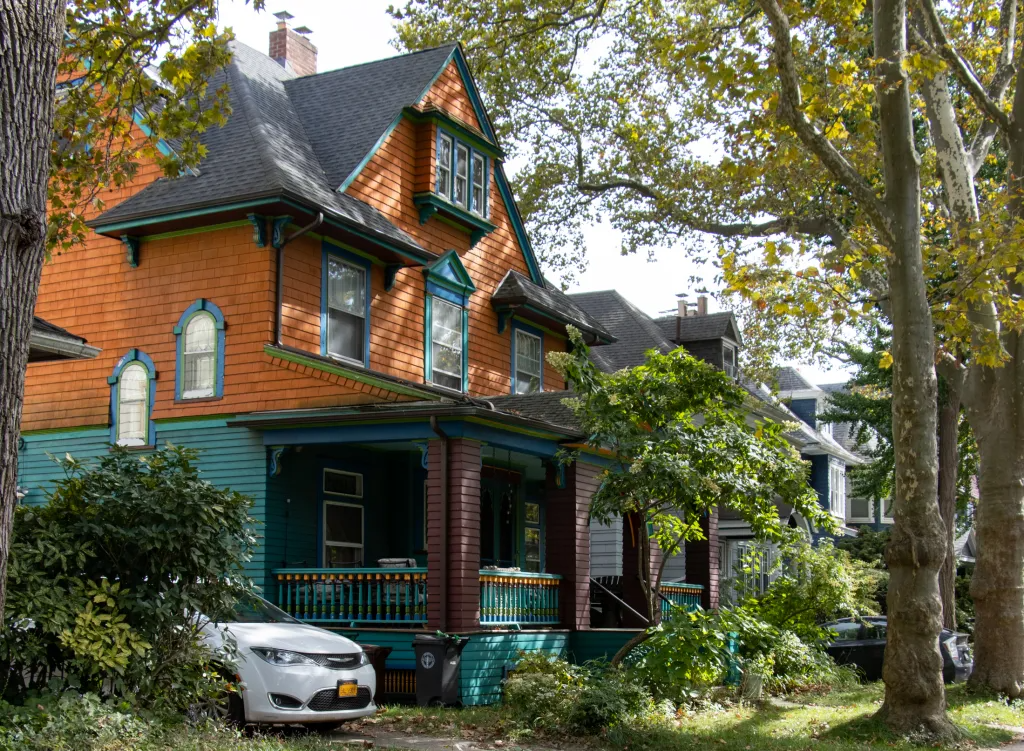Does Your Front Door Belong to Everyone in the Co-op?
In July, a Clinton Hill co-op board decided to enforce a house rule: no decorations on any doors, without getting board approval first. That meant that Vincent Romano had to remove the magnetic American flag he’d placed there to commemorate a relative killed in the 9/11 attacks, reports Habitat magazine. Despite the bad press that…

 In July, a Clinton Hill co-op board decided to enforce a house rule: no decorations on any doors, without getting board approval first. That meant that Vincent Romano had to remove the magnetic American flag he’d placed there to commemorate a relative killed in the 9/11 attacks, reports Habitat magazine. Despite the bad press that Willoughby Walk Co-ops endured after word got out, the board persisted, not realizing that the “Freedom to Display the American Flag Act of 2005” protects one’s right to display the American flag on one’s own property. Except it turns out the door to your unit belongs to the co-op as a whole. “In a co-op you don’t own; you have possessory-use right for inside the apartment,” says an attorney. Which means co-ops are immune from the federal law, and maybe you should ask your co-op board next time you want to alter your door, no matter how patriotic the change.
In July, a Clinton Hill co-op board decided to enforce a house rule: no decorations on any doors, without getting board approval first. That meant that Vincent Romano had to remove the magnetic American flag he’d placed there to commemorate a relative killed in the 9/11 attacks, reports Habitat magazine. Despite the bad press that Willoughby Walk Co-ops endured after word got out, the board persisted, not realizing that the “Freedom to Display the American Flag Act of 2005” protects one’s right to display the American flag on one’s own property. Except it turns out the door to your unit belongs to the co-op as a whole. “In a co-op you don’t own; you have possessory-use right for inside the apartment,” says an attorney. Which means co-ops are immune from the federal law, and maybe you should ask your co-op board next time you want to alter your door, no matter how patriotic the change.
Authoritarian Boards, Public Rancor, Wise Compromise [Habitat]
Photo by PropertyShark.





I think there can be rules so no one puts something offensive on their doors, but this seems a little like throwing out the baby with the bathwater. I guess I just see it as our need to have control over every little thing and while I understand from the board and shareholders point of view. it seems to me you buy into a coop and you should be able to have some say so.
A few years ago my sister’s neighbor went into the hospital for a long stay. His daughter turned off the electricity without cleaning out the refrigerator. My niece and nephew were young at the time but the board would not go into the apartment or call the daughter because it wasn’t in the rules. When I tell you that smell lasted for months and my family had to live with it day in and day out, I’m not kidding. The first time I went up there and stepped out of the elevator I almost threw up. It was that horrible.
I have to agree with having the rule since it’s not always a style issue.
My friend bought a condo in a very hoity toity building in Manhattan in the early 90’s had her place up for sale last year. Problem was she had a Vietnam Vet who had since moved across the hall from her and basically used his door as a billboard to constantly voice his political agenda in a very “WHAT-ish” way. It was certainly inflammatory, offensive and for lack of a better word disturbing (Hanoi Jane being burned with the words burn b*!ch underneath and the like). Needless to say when he was approach he cited the X-mas wreaths as his defense and they only got him to remove items that had profanities.
She eventually sold the place but not until the building instituted the same nothing on the door rule. It took a while to pass because people who didn’t live on that floor didn’t quite see it as being as big a problem.
Co-op boards have the right to make rules, but surely they should reflect the concerns of a majority of the shareholders. And one of the points made in the original article is that people in that building weren’t complaining about decorations on doors — it’s a really interesting article that goes into a lot of detail about the situation. I highly recommend it!
http://www.habitatmag.com/publication_content/2008_october/web_exclusive_adaptations/authoritarian_boards_public_rancor
Biff- yes, you must get rid of it. In fact, with rules like that you may as well rent that way you won’t have the style police check you out for “appropriateness”.
It’s just a ridiculous issue. I don’t care about the board. You spen 20 second walking down your hall and zip into your apartment. We’re a nation of f**kin busybodies. How about we worry more about ourselves instead of the state of our neighbor’s door?
Maybe because I have never lived in an apartment building that had a long hallway with apt doors, like a hotel, I don’t get what the fuss is. How can even children’s artwork, let alone a flag and some perhaps tacky holiday decor pull apartment values down to any great extent? As a visitor, I may admire, laugh at, or not even notice other people’s doors, but in the long run, I don’t think less of the building, or it’s residents for some creative expression. I’m sure most people do absolutely nothing at all with their front doors, so the occasional decoration is probably more of an exception rather than the rule.
I still think it’s much ado about nothing.
Noki and Biff, please don’t mistake my charity for anything other than that. The woman scares the hell out of me, more than McCain does.
I was just reliving my performing days, when I crammed too many opera lyrics into my brain, and then totally forgot them on stage. I got pretty good at making up gibberish in foreign languages. I do NOT want that to be a trait of the leader of this nation however. We just went through 8 years of gibberish in quasi-English from another nut.
ceolaf, does that mean the coop board, if they are so inclined, can request one remove one’s shaggy toilet seat warmer?
To answer the question in the post’s title: Yes.
In fact, your bathroom door, bedroom door and closet door all belong to everyone in the coop. So does your toilet, your light switches and any ceiling mounted lights or fans.
OK, there are two issues here.
Neither one of them is actually the flag itself — and certainly not Jessica Palin.
The first issue is the common problem of people who live in coops thinking that they own their apartments. Like it or not, they don’t. They own shares in the corportion that owns the building, and usually have exclusive rights to live there. They don’t own the apartments or the the fixtures. That all belongs to the coop. Unfortunately, very few people think about what this actually means.
The second issue is understanding tradeoffs. A coop’s board is responsible to its shareholders (i.e. the owners), and if those shareholders live in the building their interests are different than if they don’t. If they don’t live in the building, perhaps they might want the clearest and least contraversial doors, as that would help sale and even rental values. But if they DO live in the building, it might be in their interests to give up some of that sale or rental value in exchange for some amount of improved lifestyle.
The officers report to the board, who are accountable to the shareholders. And if most of the shareholders disagree with you, then you need either to find a way to deal with it, find another coop or find another kind of housing entirely.